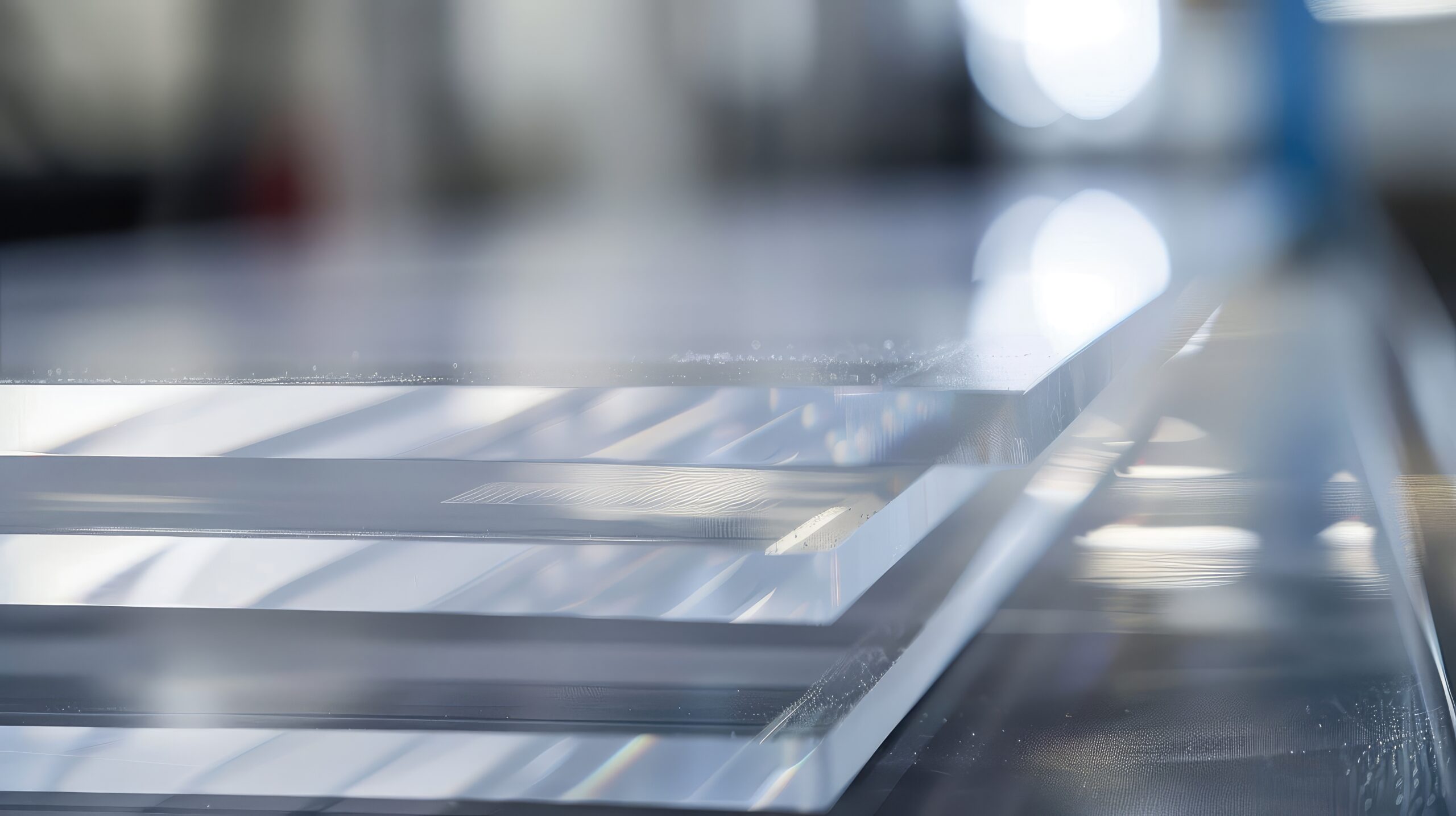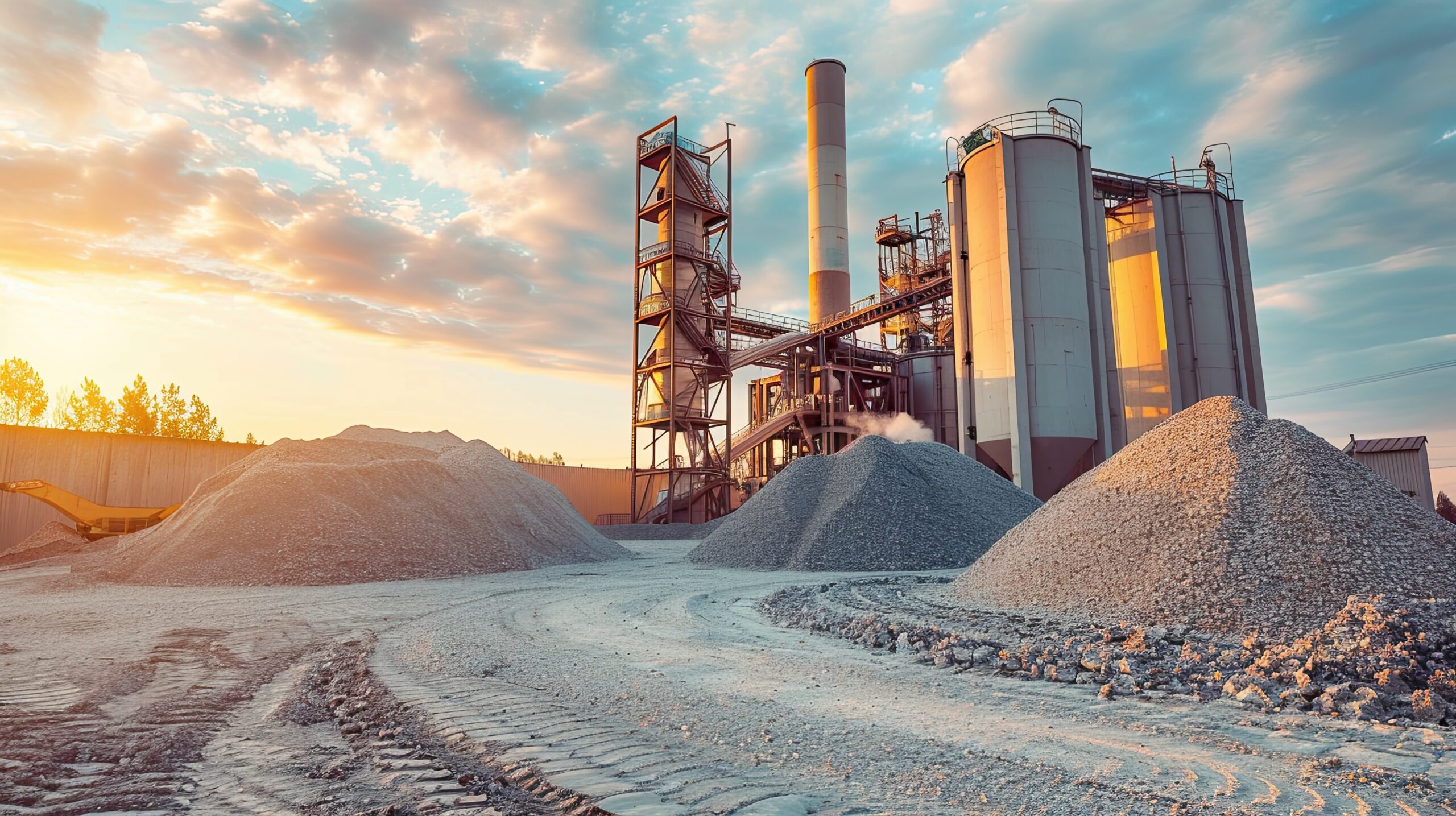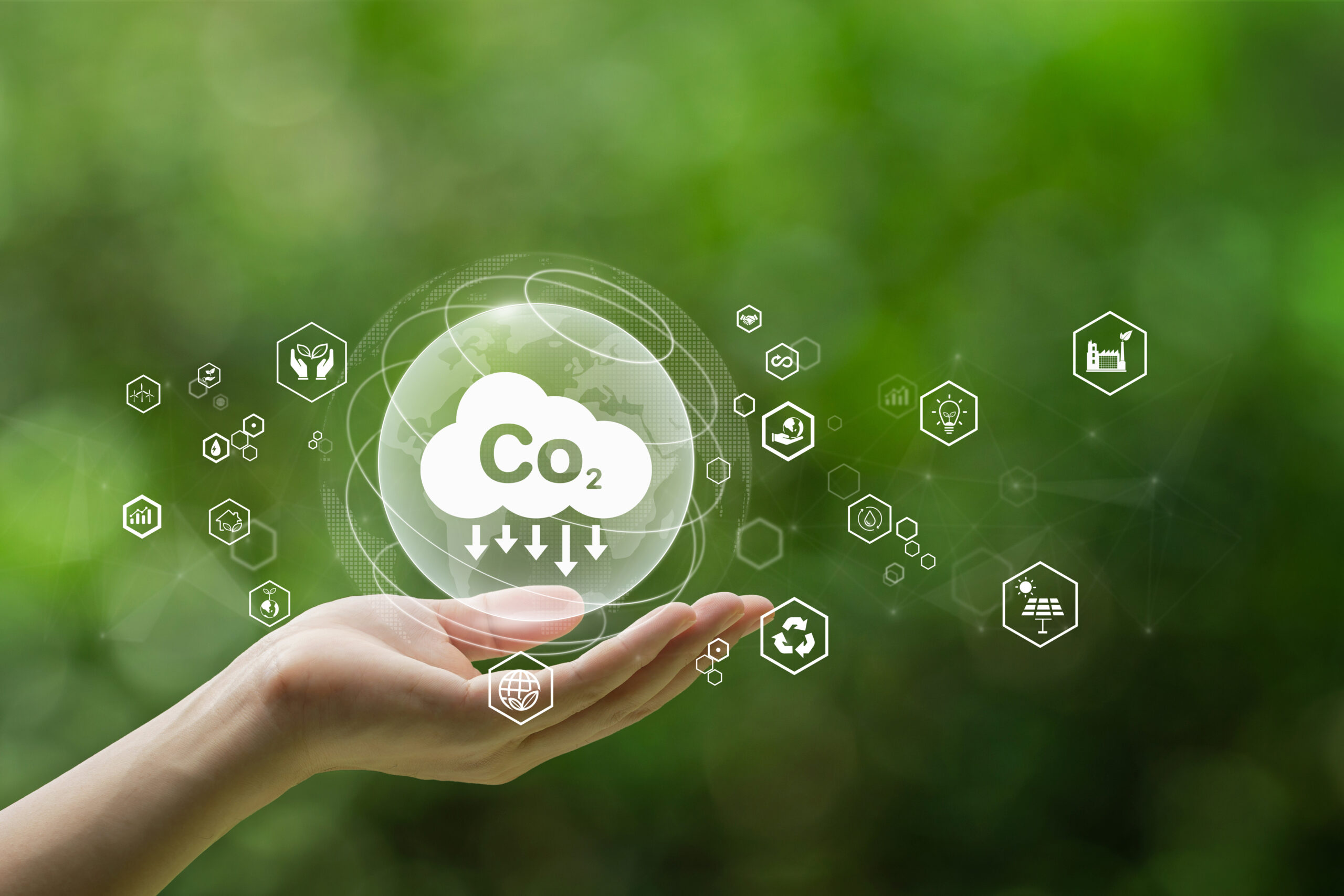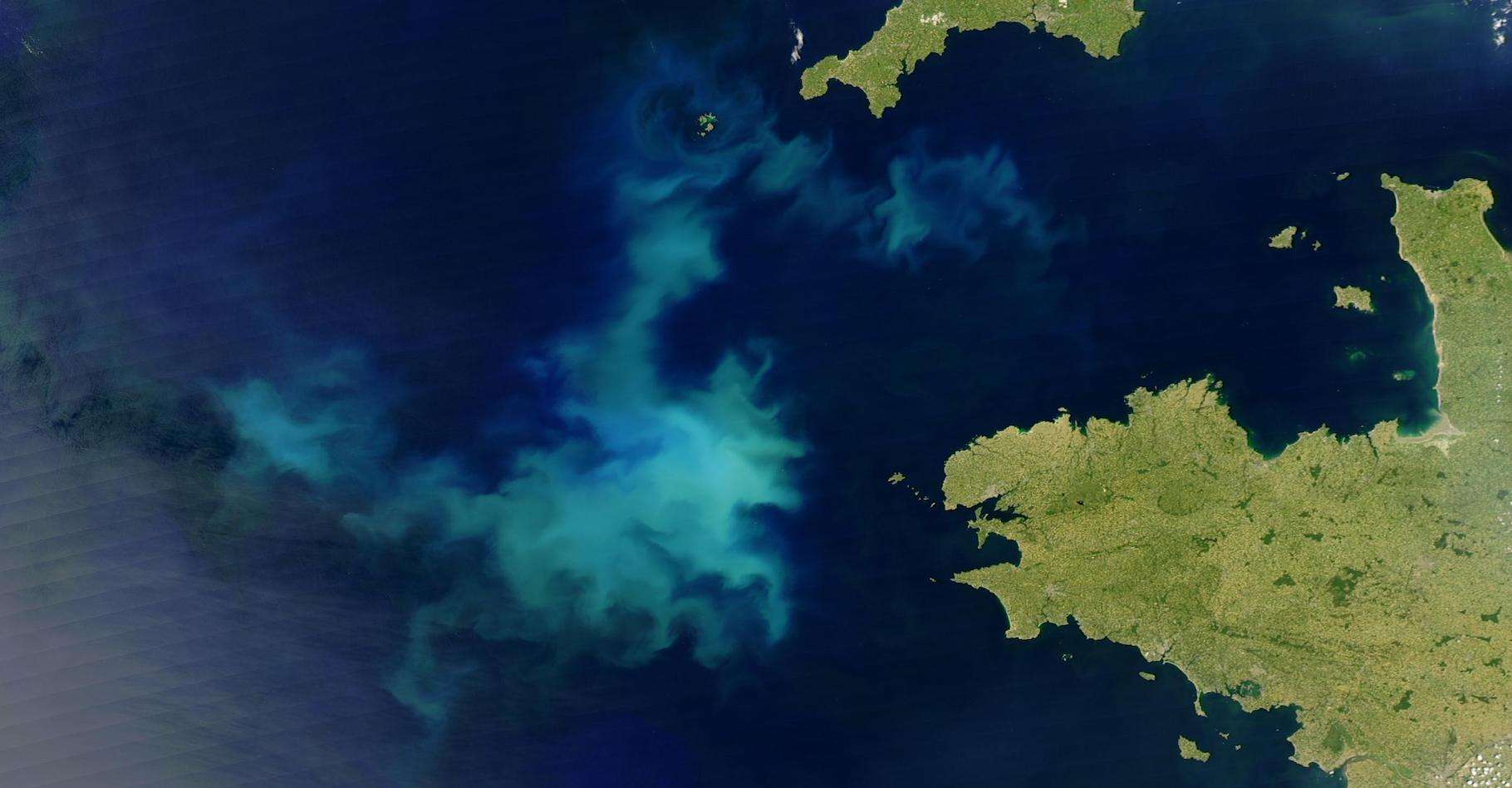
COCCINELLE Project
Coccolithophores and calcifying cyanobacteria for carbon capture, utilization, and long-term storage
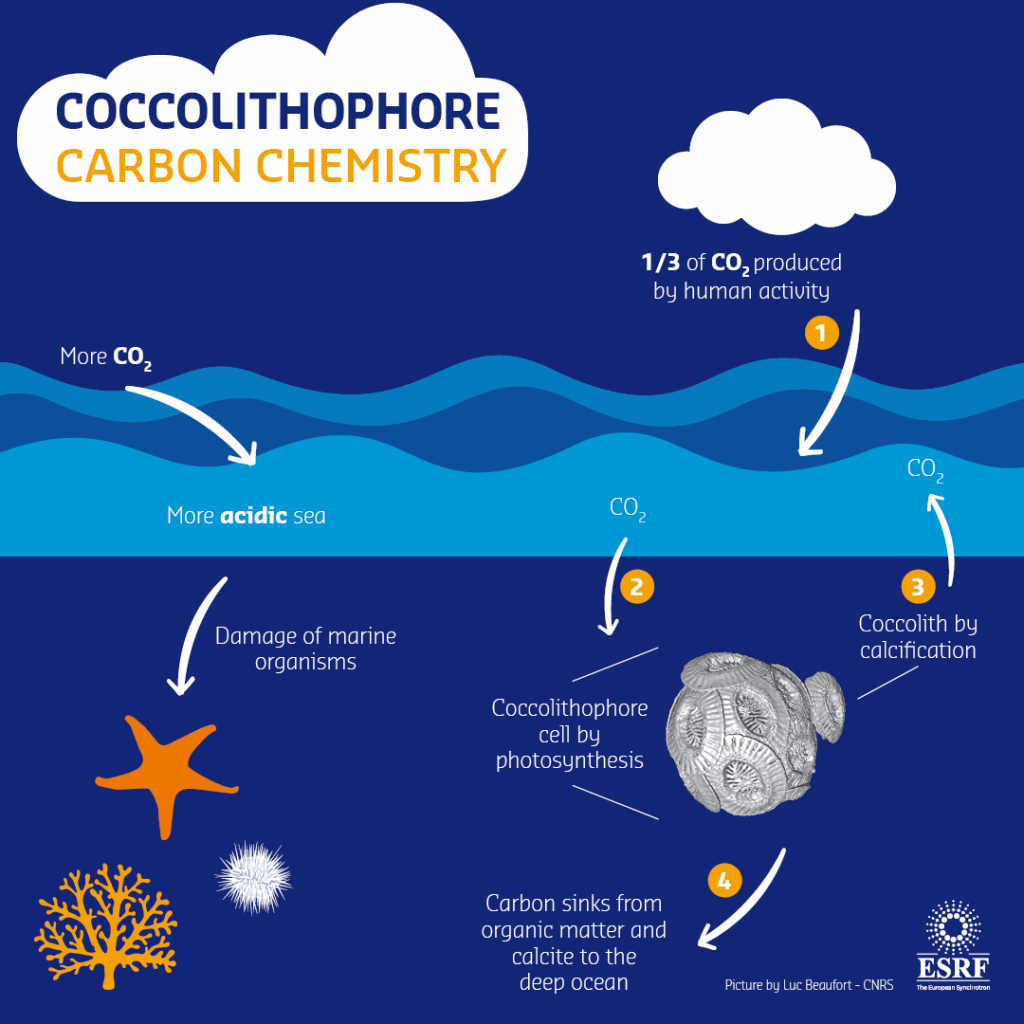
Project coordinated by Nantes Université
Duration of 4,5 years
2,61 millions euros of budget
2 theses
Context and challenges
The biomineralization of CO₂ through calcium carbonate (CaCO₃) precipitation is a widespread phenomenon in marine, freshwater, and terrestrial ecosystems, playing a central role in the global carbon cycle. Calcifying microorganisms, notably coccolithophores and calcifying cyanobacteria, actively participate in this process, offering promising opportunities to capture, utilize, and sustainably store CO₂ from industrial activities.
Coccolithophores are microscopic marine algae that use carbon dioxide for growth and release CO₂ when forming their miniature calcite shells.
Scientific objectives
The COCCINELLE project explores the potential of these biological mechanisms for long-term carbon storage and investigates opportunities for valorizing the products formed. This multidisciplinary project brings together experts in bioprocesses, analytical biochemistry, civil engineering, and materials engineering, as well as industrial stakeholders. Together, they aim to evaluate this technology in response to the challenges of the PEPR SPLEEN and to accelerate its industrial transfer.
The project is structured into three main phases:
- Modeling and experimental validation: Study of the growth and calcification processes of a coccolithophore (Emiliania huxleyi) and a model cyanobacterium (Synechococcus sp.), including biological and physical phenomena (radiative transfer).
- Implementation of bioprocesses: Development of the biocalcification process (cultivation, harvesting, separation) up to TRL 4 (technology readiness level).
- Fundamental studies on valorization pathways: Analysis of the products formed for applications in civil engineering and materials.
Through this integrated approach, COCCINELLE establishes the foundation for a biological carbon capture, utilization, and storage process, paving the way for innovative solutions to reduce greenhouse gas emissions.
The consortium

